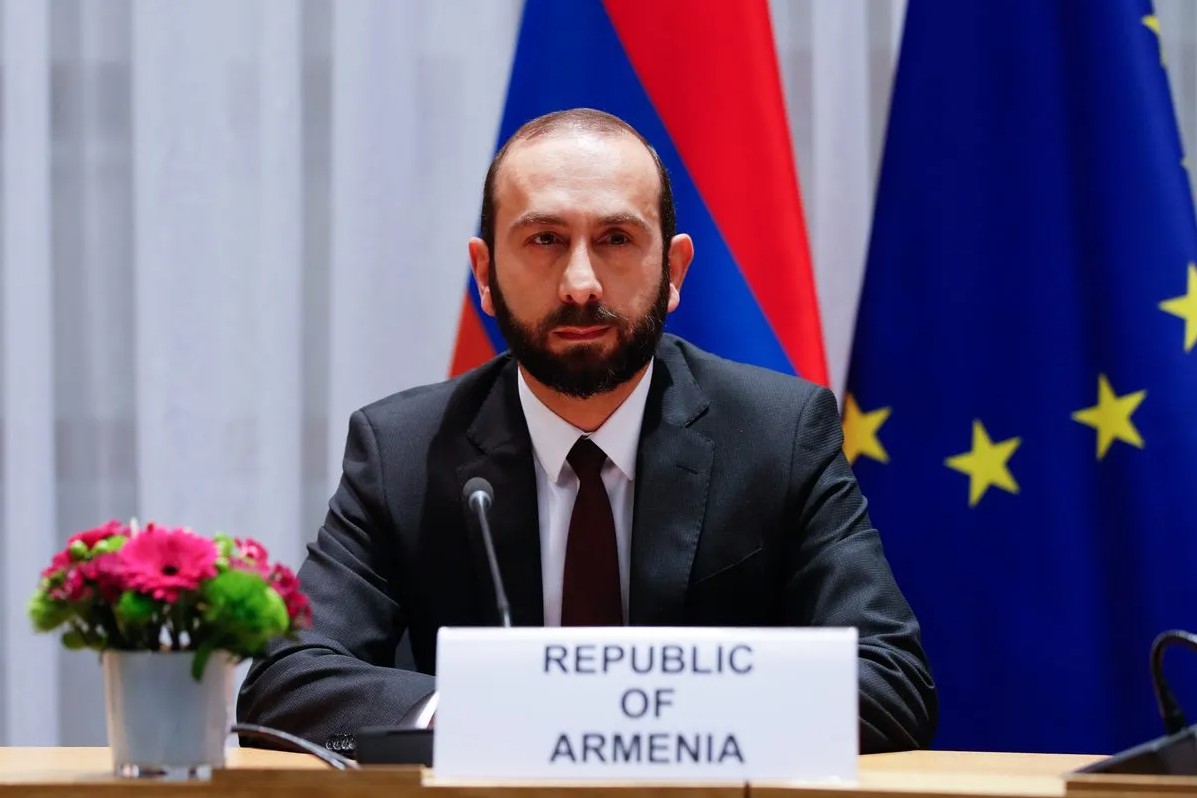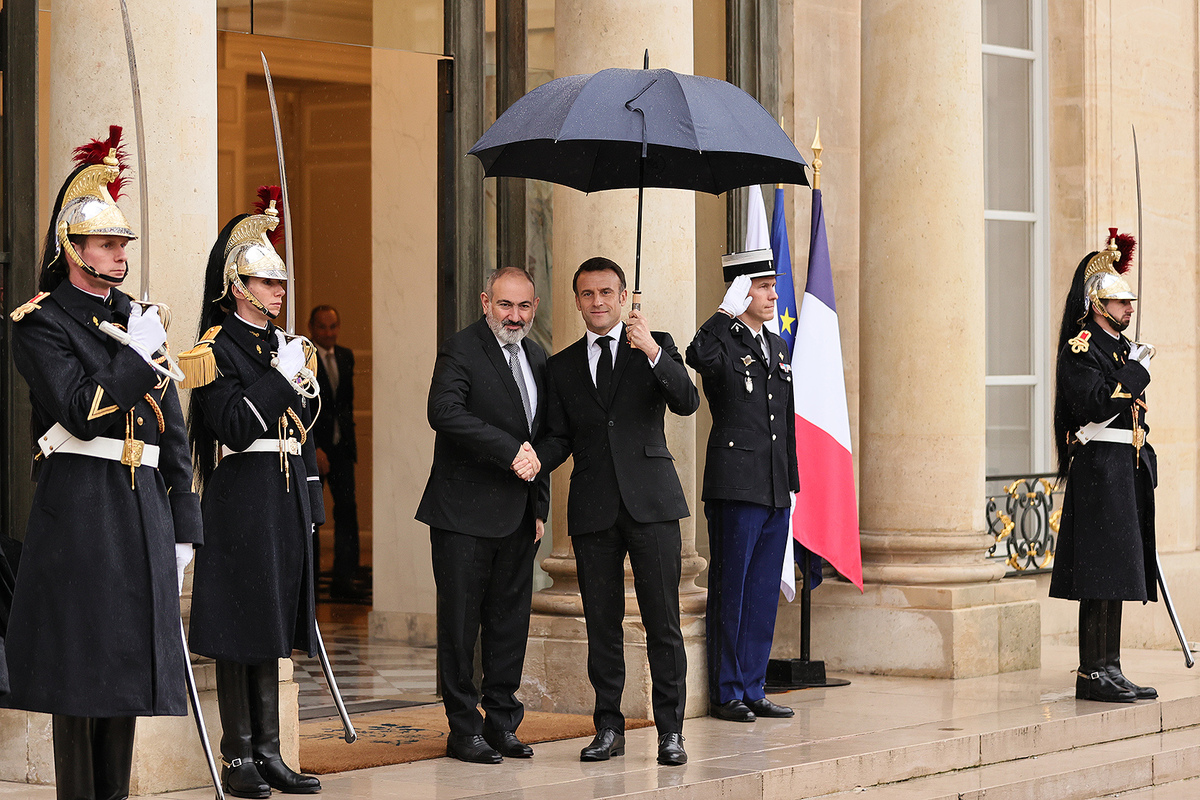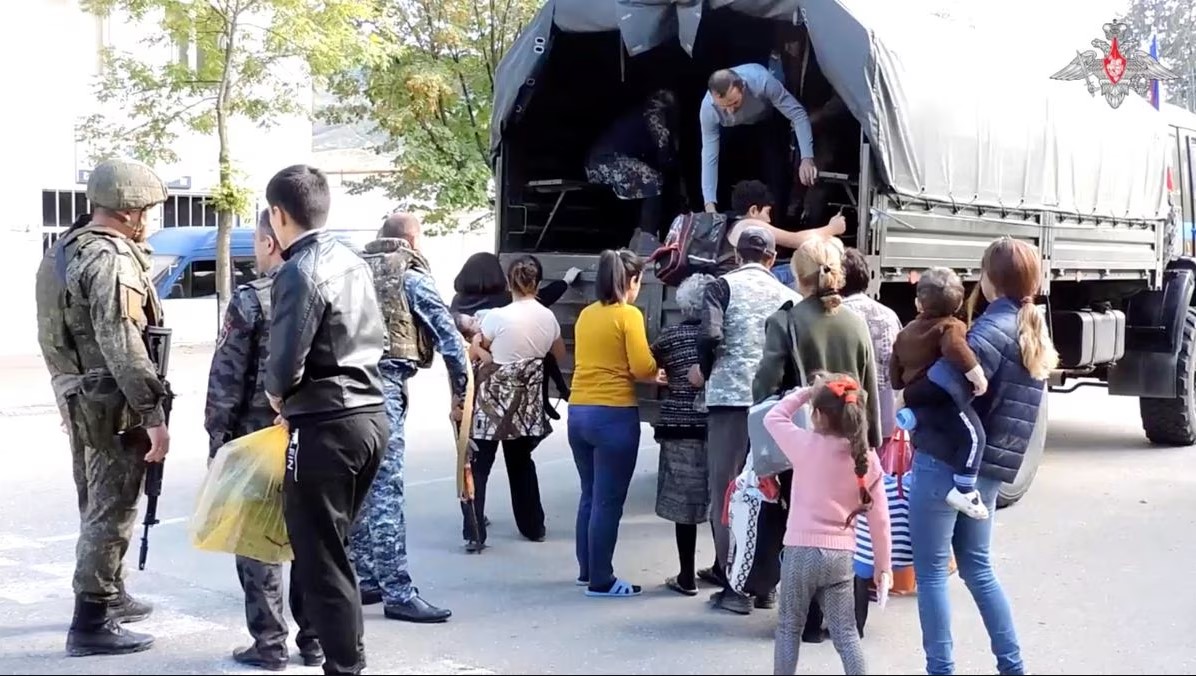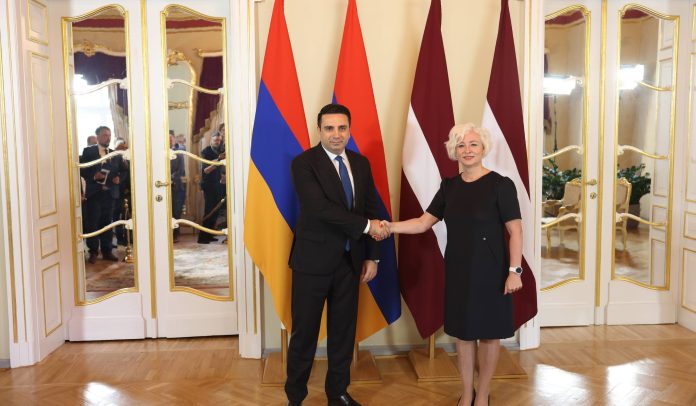According to Armenia’s Parliament Speaker, Alen Simonian, Armenia is seeking to soon hold a national referendum on if the nation should seek EU membership. Simonian’s words come just a few days after Russian Deputy Prime Minister Alexei Overchuk warned against such a move.
Accession to the EU
During a recent visit to Latvia, Speaker Simonian restated Armenia’s hopes to join the EU. In an interview with Latvia’s Rus.LSM news agency, Simonian stated his belief that Armenia will hold a referendum on the matter in the near future, and that he is certain it will pass.
“I think that sometime in the near future we will have this referendum and I am sure that our people will say yes” -Armenian Parliament Speaker, Alen Simonian
Pro-western groups within Armenia’s parliament last week requested such a referendum to be held within the next three months
Simonian first floated the idea of an Armenian entry into the EU in February. Armenia’s Minister of Foreign Affairs, Ararat Mirzoyan, followed suit in March when he directly stated that Armenia was considering applying for membership in the EU.

The Foreign Minister’s announcement was welcomed warmly by the EU, who several days later passed a resolution in which the EU not only acknowledged Armenia’s hopes to join the EU, but also called for the EU to support this initiative. At the time, Armenian media was reporting that Prime Minister Nikol Pashinyan was considering filing an official application sometime within Autumn of this year. However, that was never confirmed by any official government sources.
In order for a nation to apply to the EU, they must pass a series of economic and democratic reforms in order to liken many of their systems to those of the EU. The passage of such reforms in other nations resulted in Ukraine and Moldova being accepted for membership negotiations in December. Georgia was granted candidate status at this time, also after carrying out reforms.
Ukraine and Moldova’s membership negotiations officially began in Luxembourg on June 25th with talks that have been hailed as historic. Ukraine’s path towards the EU has been largely spurred on by the Russian invasion of Ukraine, which drove Ukraine further toward the West.
The 25th of June 2024 will go down in history.
Today we start negotiations with Ukraine and Moldova towards accession.
This is an important moment that strengthens us, that binds us together as one family.
Our shared future starts now.
??????
— Roberta Metsola (@EP_President) June 25, 2024
For Georgia, however, the EU has become less keen on their membership. On June 27th, an announcement arising from a meeting of EU leaders stated that Georgia’s progress toward joining the EU had halted, on account of the passage of Georgia’s controversial ‘foreign agents’ law.
The law seeks to brand any media companies or NGOs that receive more than 20 percent of their funding from foreign entities as “organizations acting in the interest of a foreign power.” The bill passed parliament despite expansive protests, and is set to become law next month in July. The bill has been referred to as the “Russian law” due to its similarity to legislation within Russia. Oppositionists believe it will be used to crack down on dissent ahead of Georgia’s parliamentary election in October.
The EU’s announcement stated the law resulted in “backsliding” on Georgia’s membership hopes, “de facto leading to a halt of the accession process.”
Democratic reforms in Armenia, with the direct assistance and encouragement of the EU, and France in particular, have been occurring for several months. These reforms have been ongoing even prior to February, when Speaker Simonian became the first member of Pashinyan’s government to speak of the idea of Armenia joining the EU.
The fact that reforms necessary for Armenia’s accession to the EU were taking place even prior to this first mention suggests that entry into the EU had been on the minds of Armenian leaders long before February.
France, home to the second-largest Armenian diaspora in Europe (second only to Russia), has aligned itself closely with Armenia, particularly in recent months. As mentioned, France has made individual efforts to support ongoing reforms within Armenia.

As one of the most influential members within the EU, the allyship of Armenia and France increases the chance for Armenia’s membership.
Regardless, there has been no direct confirmation that Armenia is, or is not, going to apply to join the EU, although the signs do point towards them doing so.
Words from Latvia
Further reinforcing the belief that Armenia will seek EU membership were statements from Latvian political officials after Simonian’s visit.
Lavtian Parliament Speaker Daiga Mierina stated that “Armenia is on its way to the European Union,” and further added that, with this path to the EU, Armenia was seeking to leave the Russian-led Collective Security Treaty Organization (CSTO).
While nothing is set in stone, Prime Minister Pashinyan first announced Armenia’s intention to withdraw from the CSTO on June 12th.
“We will leave. We will decide when to leave. We won’t come back, there is no other way” -Armenian Prime Minister Nikol Pashinyan
The Prime Minister’s statement was not an official announcement of Armenia’s immediate withdrawal from the CSTO but confirmed the thoughts of many analysts that Armenia would eventually seek to do so after a lengthy deterioration of relations between Armenia, Russia, and the CSTO.
The Prime Minister’s statement took place amidst a wider breakdown of relations between Belarus and Armenia. Belarusian President Alexander Lukashenko had made statements in support of Azerbaijan and Azeri President Ilham Aliyev, Armenia’s adversary, as well as comments negative to Armenia regarding the 2020 44-Day War, also known as the Second Artsakh/Nagorno-Karabakh War.

Beyond this, however, a report from Politico claimed that Belarus had made a number of weapons transfers to Azerbaijan from 2018-2022, amidst conflicts between Armenia and Azerbaijan. Some of these weapons were reportedly used during the 44-Day War.
PM Pashinyan stated that, should Belarus itself either withdraw from the CSTO or offer an apology to Armenia about the comments made, that he would reconsider Armenia’s eventual withdrawal from the CSTO.
Until then, Pashinyan announced that neither him nor any Armenian government officials would ever visit Belarus under his administration, and both nations withdrew their ambassadors from the other.
Further evidencing the split between Russia and Armenia, Speaker Mierina stated that Armenia had said Russian military forces were slowly withdrawing from Armenia.
“Armenia also informed us that the Russian military is gradually leaving the country” -Latvian Parliament Speaker Daiga Mierina
Russian forces have made a few notable departures from various Armenian border points and Yerevan’s airport in recent months. However, Russian forces remain present on Armenia’s border with Turkey and Iran, acting as border guards. Additionally, Russia maintains a military base in Armenia.
Armenian officials have made no official announcement concerning any potential closure of this base, however the prospect has been on the minds of many. Speaker Mierina’s statement suggests that perhaps Armenia is leaning towards the closure of the base, though there remains no official statement from Armenia on the matter.
A Pivot to the West
Simonian and Mierina’s statements signal that the gap between Armenia and Russia is only growing larger, not smaller.
Armenia and Russia have been historic allies. As a former Soviet state, Armenia and Russia maintained close relations after the fall of the Soviet Union. However, these relations have suffered extensively in recent years. The deterioration of these relations has seen Armenia make several concentrated efforts to orient itself further westward, particularly towards France, the EU, and the US.
While there are a number of factors, the greatest hits to Armenian-Russian relations, as well as those between Armenia and the CSTO, have been Russia and the CSTO’s perceived failures to defend and assist Armenia against Azerbaijan across several conflicts.
The CSTO has offered little to no assistance in assisting Armenia with the multitude of issues and conflicts that have arisen between Armenia and Azerbaijan since the 44-Day War.
Relations suffered the most in September, when Azerbaijan launched a lightning offensive against the separatist region of Arstakh. Though the region had been majority Armenian, it was internationally recognized as Azeri territory.
Azerbaijan’s offensive took place under the watch of Russian peacekeepers stationed in the area, and continued without any intervention from them.
Armenia in large part blamed the inaction of Russia and their peacekeepers for the loss of Artsakh, which resulted in the mass exodus of virtually all of Artsakh’s 120,000 Armenians.

The loss of Artsakh intensified rhetoric between Armenia and Russia, which had already been growing to carry more animosity.
Russia has continually condemned Armenia’s drift westwards, oftentimes referring to the moves as an “unfriendly step” on Armenia’s part.
Earlier this week, Russia issued another such condemnation. Russian Deputy Prime Minister Alexei Overchuk stated that Armenia will no longer be privy to tariff-free access to Russia’s market and other trade benefits if it pursues EU membership.
“The benefits that a country receives from proximity to Russia must also be perceived as the price we pay for our security and strategic depth. So the arrival of some extra-regional players there would, of course, have consequences. We don’t do gifts” -Russian Deputy Prime Minister Alexei Overchuk
Despite the growing divide between Armenia and Russia, Russia remains Armenia’s primary trade partner, accounting for 35 percent of Armenia’s foreign trade in 2023. Further, Russia is Armenia’s primary provider of natural gas, which it provides at prices that are notedly below the international norm. Armenia’s removal from Russian trade benefits would certainly have harmful effects on Armenia’s economy.

